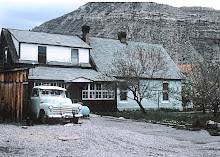But there are too many variants of each. A friend’s sister who lost her footing on a mountain-top in Mexico. Cancer in its endless incarnations. Hurricanes in the south and tsunamis in the south Pacific.
As for violence, our species wastes too much creativity on ways to kill. In war, as revenge, for sport, for profit.
This week, on LITPARK, Susan Henderson asks which murders have made an impression on people.
Like everyone, certain murders have haunted me. When I was young it was the little girl who left to buy her mother a greeting card and never made it home alive.
Later, it was Richard Speck’s systematic murder of eight student nurses in one bleak night in the Chicago neighborhood where I used to live. Then it was William Heirens’ serial killings. From the web: Heirens was arrested in 1946 for a number of sex crimes and murders. At one murder scene he scrawled a note in lipstick reading For Heaven's sake catch me before I kill more. I cannot control myself.
I read the book: Catch Me Before I Kill More.

Heirens was long in jail by the time we moved to his town, but his family’s house sat low to the ground three blocks from my own. It was an old-fashioned yellow frame structure, out of place in the brick-y suburb. The house seemed marked, as if he were condemned to be different, an outsider, a criminal—by its very appearance.
One of the most recent murders to affect me—in life, rather than in imagination—was committed by the doctor who lived across the street.
From the news: "On May 23, 2005 a federal jury condemned a Chicago podiatrist to death for murder. Dr. Ronald Mikos fatally shot Joyce Brannon 54, a disabled former nurse, at point-blank range in 2002, just four days before she was to testify against him in a $1 million Medicare fraud case." Brannon lived in the basement of a church, which is where he shot her.
I first got wind of Mikos’ arrest when I came home and saw a number of cruisers and TV vans parked directly across the street.
Mikos was the boyfriend/boarder of a very kindly woman in a tiny beige brick bungalow across from us. Her daughter was friendly with mine, Meredith. Mikos drove a red convertible, and seemed rather innocuous. I would often see him pulling away from the house when I walked the dog. Once, Meredith attended a birthday party at his ex-wife's house in Skokie. I remember large fish tanks. My daughter was quite young, yet I left her there for the afternoon, unattended.
I never knew, until I mentioned the murder to Meredith, that Mikos used to give her and her friend rides home from school in that little red convertible, two innocent grammar school girls, wind whipping through their hair.
They are grown now. My daughter, 18, hiking in Mexico. Her young friend’s family moved far from the home they shared with Mikos.
Yet in my mind’s eye I can see them still, those innocent and trusting grade school girls, doing what I never knew they had done in life: They perch on the back seat of a red 1994 Pontiac convertible. A man who will become a murderer is at the wheel. Their laughter is lost in the wind.




